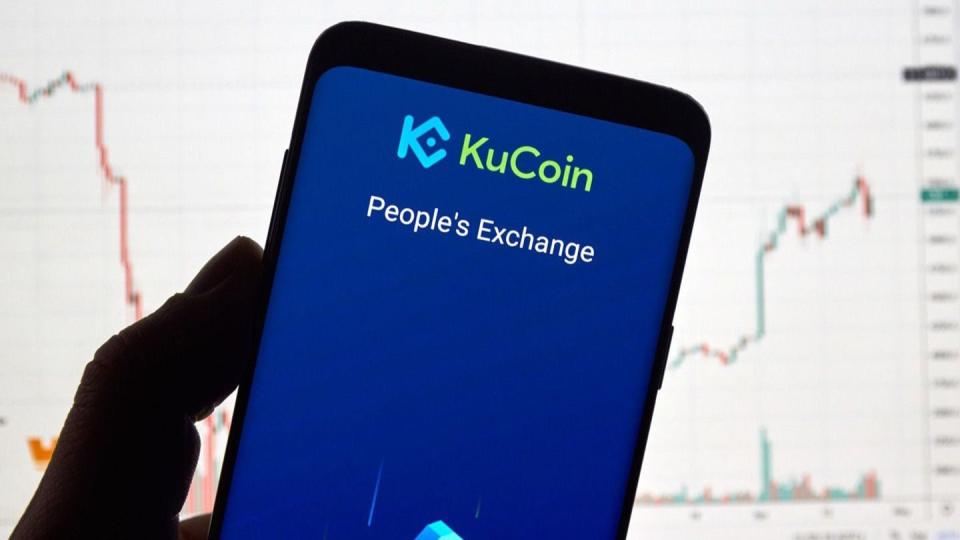Crypto Exchange KuCoin Violated Anti-Money Laundering Laws, U.S. Charges

Crypto exchange KuCoin and two of its founders were charged with violating anti-money laundering laws by U.S. federal prosecutors.
Homeland Security Investigations Special Agent Darren McCormack called KuCoin "an alleged multibillion-dollar criminal conspiracy."
KuCoin’s native token {{KCS}} dropped by 5% after the announcement.
U.S. federal prosecutors charged crypto exchange KuCoin and two of its founders with violating anti-money laundering laws on Tuesday, saying the exchange operated in the U.S., lied to at least one of its investors about operating in the U.S. and failed to both register with U.S. government entities and maintain an anti-money laundering program.
The U.S. Department of Justice said in an indictment that KuCoin and founders Chun Gan and Ke Tang operated KuCoin as a money-transmitting business with over 30 million customers but did not implement a know-your-customer (KYC) or AML program until 2023 – and even then, its KYC program did not apply to existing customers. Neither Gan nor Tang were arrested, the DOJ said in a press release.
The DOJ indictment said that KuCoin did not register with the U.S. Financial Crimes Enforcement Network as a money services business.
Because it did not implement any KYC or AML programs, KuCoin "made itself available to be used, and in fact was used, as a vehicle for laundering the proceeds of suspicious and criminal activities, including proceeds from sanctions violations, darknet markets, and malware, ransomware, and fraud schemes," the indictment said.
The indictment pointed to allegations that KuCoin "indirectly received a total of more than $3.2 million worth of cryptocurrency from Tornado Cash," a sanctioned crypto mixer. KuCoin was mentioned in criminal filings against two of Tornado Cash's developers, Alexey Pertsev (whose trial in The Netherlands began earlier Tuesday) and Roman Storm (who's set to go on trial in the U.S. later this year).
The Commodity Futures Trading Commission also filed a suit against KuCoin Tuesday, alleging the company, which offers both spot and futures trading services, did not register as a futures commission merchant, swap execution facility or designated contract market. Its suit also charged that KuCoin didn't implement the CFTC's equivalent of a KYC program.
The CFTC is seeking monetary penalties, trading and registration bans and an injunction, while the DOJ is seeking forfeiture alongside criminal penalties.
In a statement, Homeland Security Investigations Special Agent in Charge Darren McCormack called KuCoin "an alleged multibillion-dollar criminal conspiracy," noting it was one of the largest crypto exchanges.
U.S. Attorney Damien Williams said in a statement that KuCoin actively tried to hide that "substantial numbers of U.S. users were trading" on its platform.
"Indeed, KuCoin allegedly took advantage of its sizeable U.S. customer base to become one of the world’s largest cryptocurrency derivatives and spot exchanges, with billions of dollars of daily trades and trillions of dollars of annual trade volume," he said." As alleged, in failing to implement even basic anti-money laundering policies, the defendants allowed KuCoin to operate in the shadows of the financial markets and be used as a haven for illicit money laundering, with KuCoin receiving over $5 billion and sending over $4 billion of suspicious and criminal funds."
KuCoin’s native token (KCS) dropped by 5% following the announcement. Bitcoin's {{BTC}} price dropped 1% but has been volatile throughout the day and is trading around $70,000.
Tuesday's actions come just months after the DOJ, CFTC and Treasury Department settled similar charges against Binance, the world's largest crypto exchange by trading volume.
UPDATE (March 26, 2024, 15:25 UTC): Adds additional detail.
UPDATE (March 26, 15:40 UTC): Adds more details from the CFTC and DOJ filings.
